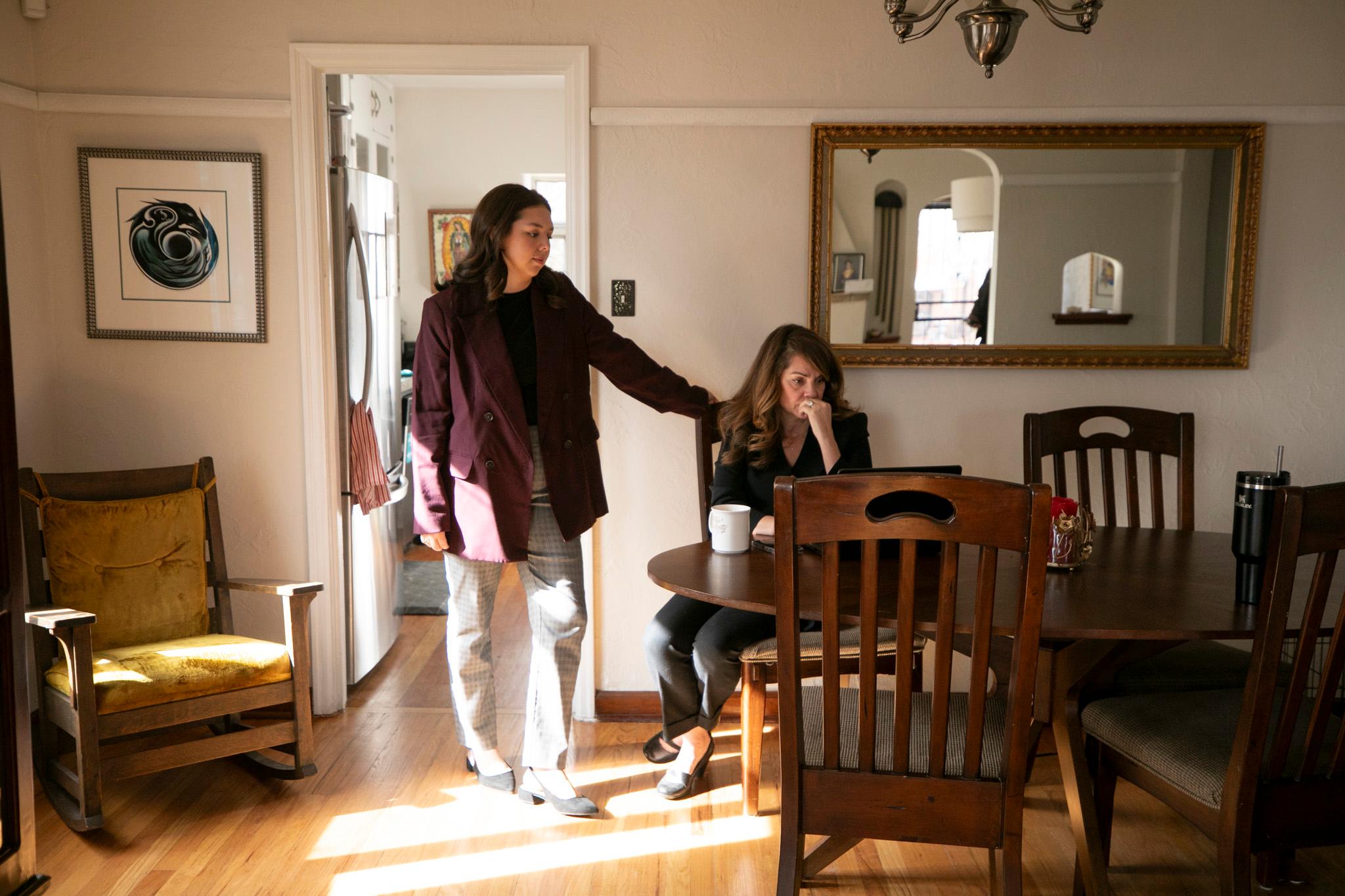In a corner of the dining room at Amanda Sandoval’s house is a rocking chair with a worn wooden frame and golden upholstery. It was her father’s chair. Paul Sandoval was a Latino community champion, and as a state lawmaker, he helped pass Colorado's first bilingual education bill.
He was also a smoker. The chair still carries that unmistakable cigarette smell.
“He shows up sometimes. I get whiffs of tamales and cigarettes, which is a distinct smell, and it's my dad,” said Sandoval.
He was a prominent political consultant, known as a “kingmaker,” who described himself as a tamale maker who brokered agreements in smoky backrooms.
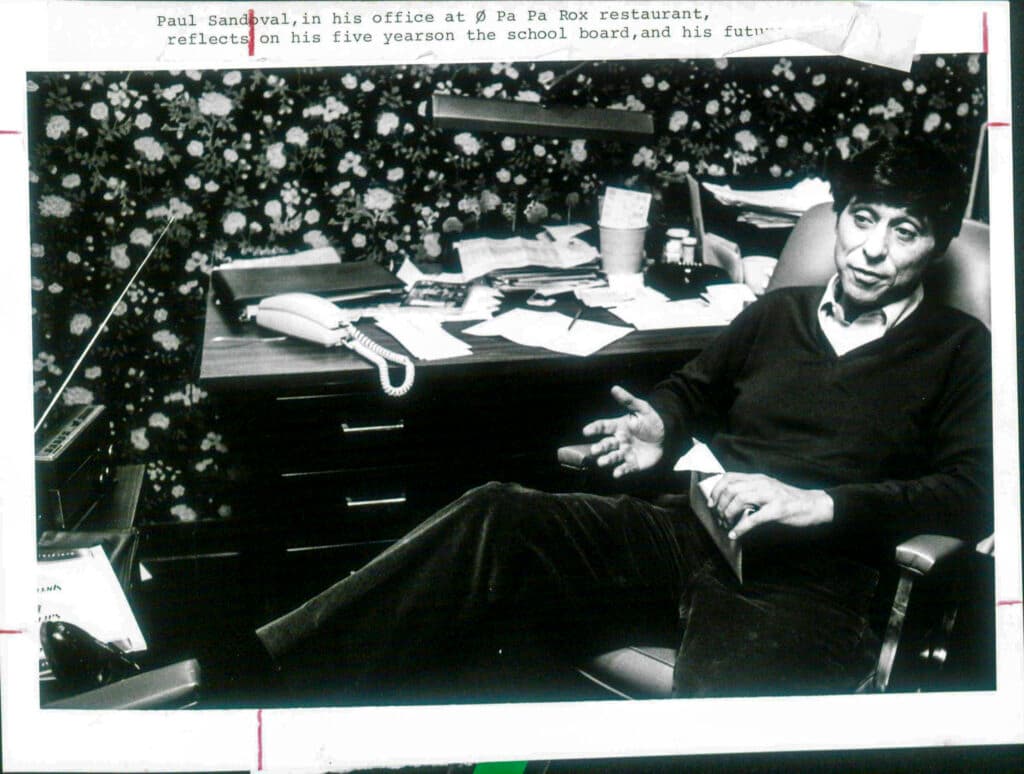
Sandoval is the president of the Denver City Council. Earlier this year, she voted in favor of Denver’s nicotine flavor ban, which is now being challenged on the November ballot. Before voting for the law, she told a packed audience about her father and the generational impact of tobacco.
“My dad died of pancreatic cancer in 2012. Did anyone tell me at the time that it could have been because he smoked cigarettes from the time he was 13 years old?” the Denver City Council president asked.
She also spoke about how in her day, the thing was clove cigarettes at cafes and clubs. “I was 18 and I thought it was cool, and it didn't taste like tobacco,” she said. “So that's a second generation.”
Now, joining her at the family’s dining room table is the next generation, her daughter Bella Sandoval-Encinas. Like a lot of young people now in their early 20s, Bella started vaping in high school, when she was 14.
During her sophomore year at Denver’s East High, an upperclassman friend offered Bella a Juul.
“She was like, ‘Oh, like I have this Juul, do you want to try it?’ And I was like, ‘OK, sure.’”
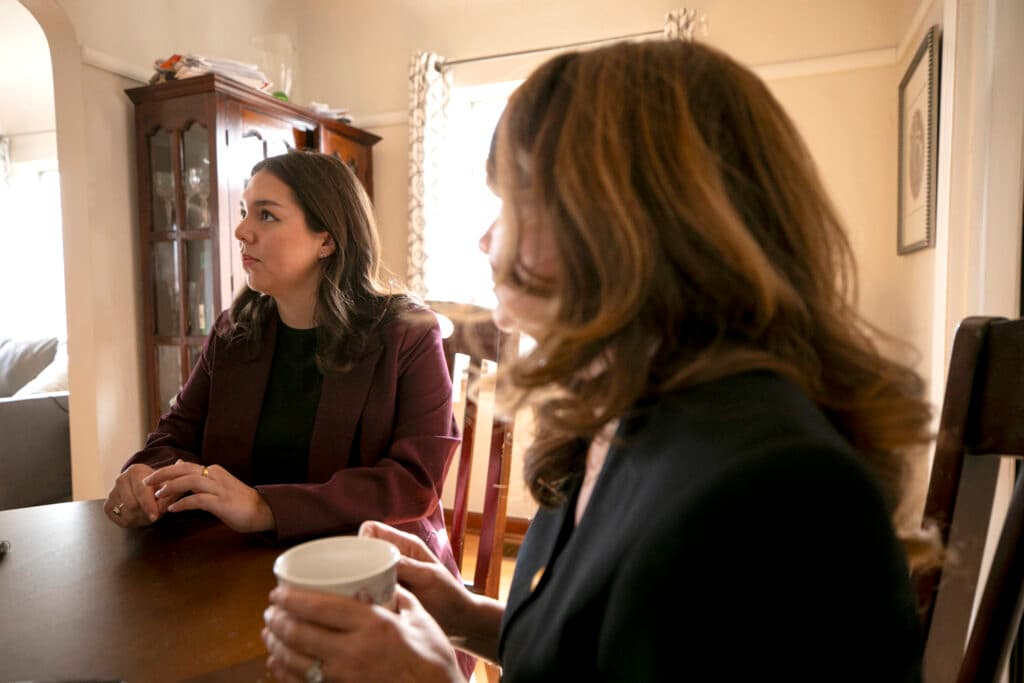
It came with a starter pack of four flavors. “The one that I had tried was the mint Juul pod, and yeah, I liked it,” Sandoval-Encinas said.
It felt cold and weird in her mouth, she said, and it wasn’t long until Bella was ducking into the bathroom at school or her home in northwest Denver to hit the vape.
“Fall of junior year, I was definitely addicted,” she said. “And I don’t think when I was 14, I realized that’s what I was getting myself into. I didn't realize it was going to become a full addiction.”
Her journey is one many families in Colorado, which once had the nation’s highest teen vaping rate, know all too well. And it’s the type of story that’s fueled Denver’s battle over flavored tobacco.
Backers of the city’s ban on flavored nicotine products, which will be retained if the yes side prevails, point out how addictive the products are and that most kids who get hooked start with flavors.
Opponents, who collected thousands of signatures to put the measure on the ballot, said the fight is really about individual rights and adults being able to make their own choices.
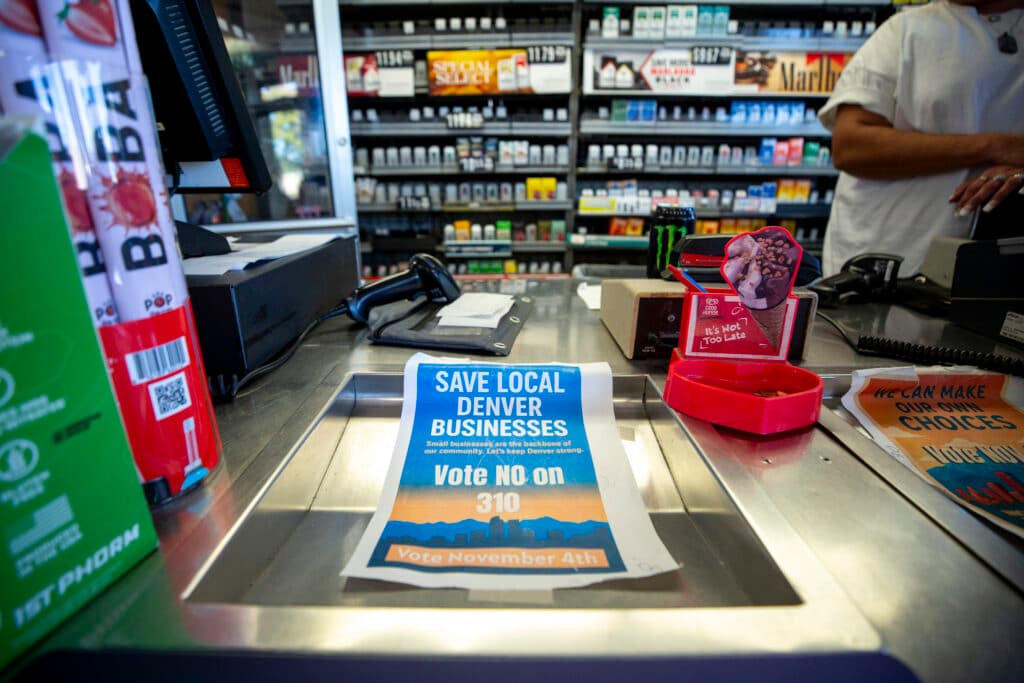
A fatherly intervention via video
In Bella’s case, her habit led to two things.
“So we started finding them in the house,” Amanda said. First, it got her grounded from using a favorite app, Snapchat, “for getting caught numerous times and lying to us.”
And next, her parents made her post recordings her dad made on her Snapchat. Bella held up her phone to show the videos that any teenager might describe as horrifyingly embarrassing.
“Hi, spring breakers, this is Isabella’s dad, Michael,” said Bella’s dad, who wore a baseball cap.
It was a sort of public service announcement.
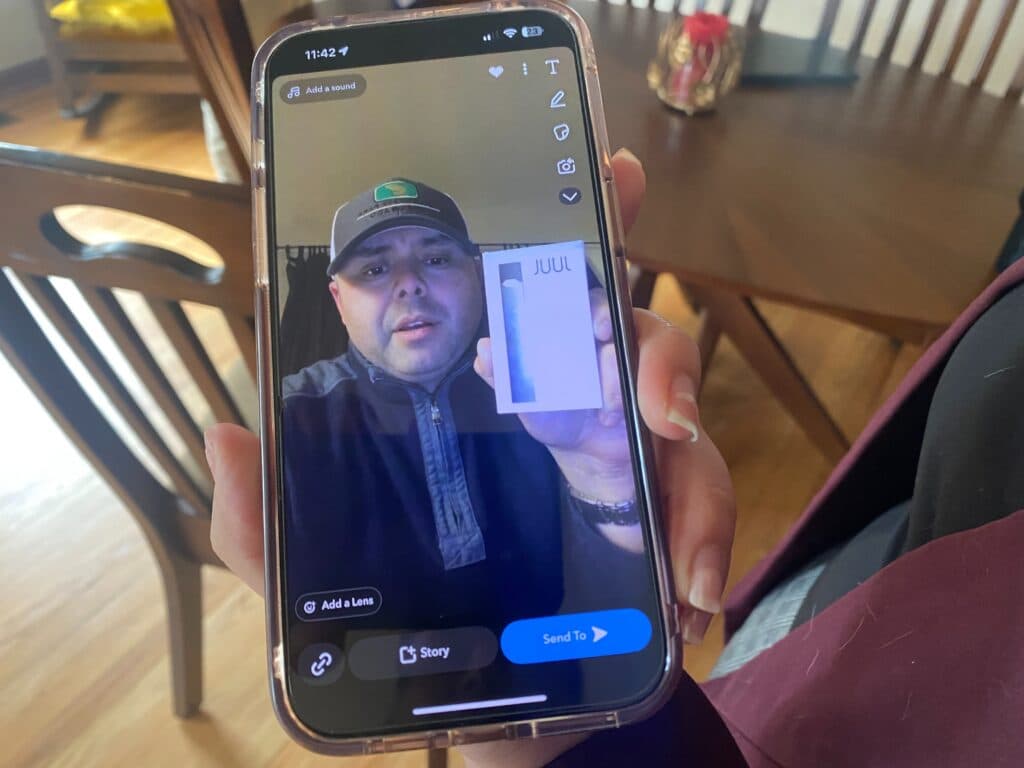
“Today, her mom was going through her room and we found this empty box of Juul,” he said, holding up distinctive packaging.
“Some of you have been busted at school with these things,” Michael continued.
“They're not good for you,” he wrapped up. “Thank you very much. Try to enjoy the rest of your spring break. Don't act like a damn fool.”
Was the dad's intervention effective, a game-changer? “No. Everyone just thought it was really funny,” Bella said.
Eventually, though, over the course of a few years, the message did sink in, and Bella decided to quit. It’s something she thinks her grandfather Paul would appreciate.
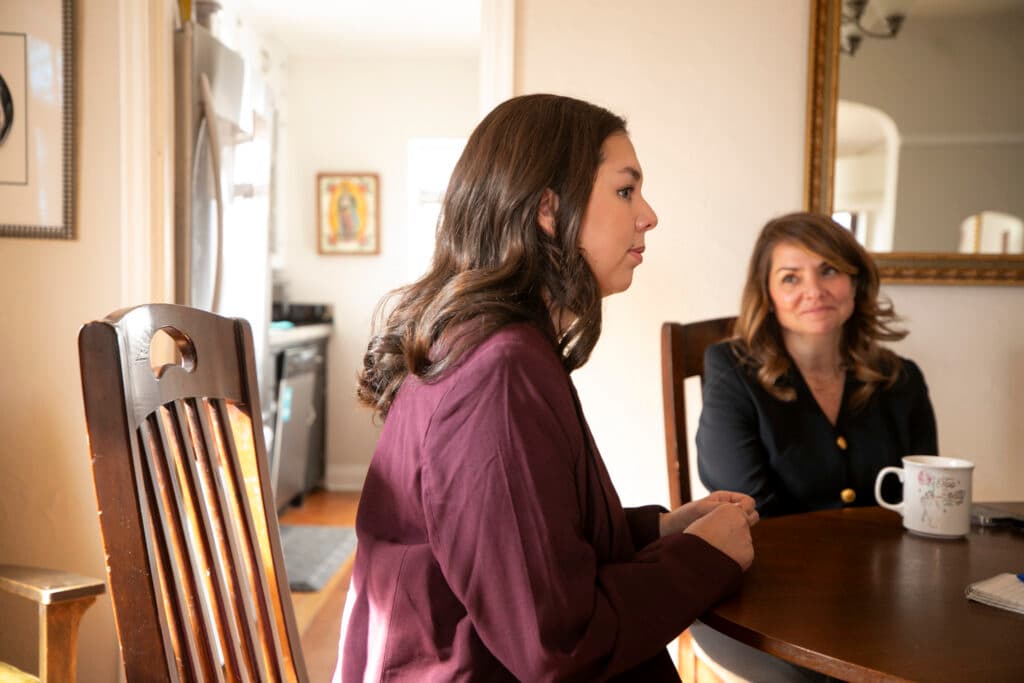
“It's been hard for sure. But I'm glad I'm doing it and I've convinced multiple of my friends to do it with me and I'm really proud of that,” she said.
Bella also applied for and got a few hundred dollars back from Juul. It was part of a $300
million settlement of a national class action lawsuit accusing the company of misleading the public about how addictive its products are and unlawfully marketing them to teens.
“I got a Venmo notification that I had gotten $300 sent to me from the class action lawsuit,” she said with a smile. “And it was like a reward.”
The company declined to comment.
Sandoval-Encinas knows her mother appreciates her decision to quit, especially in light of what Amanda Sandoval described as an industry pattern of marketing tobacco to Latino and Black communities, including billboards targeting Denver neighborhoods.
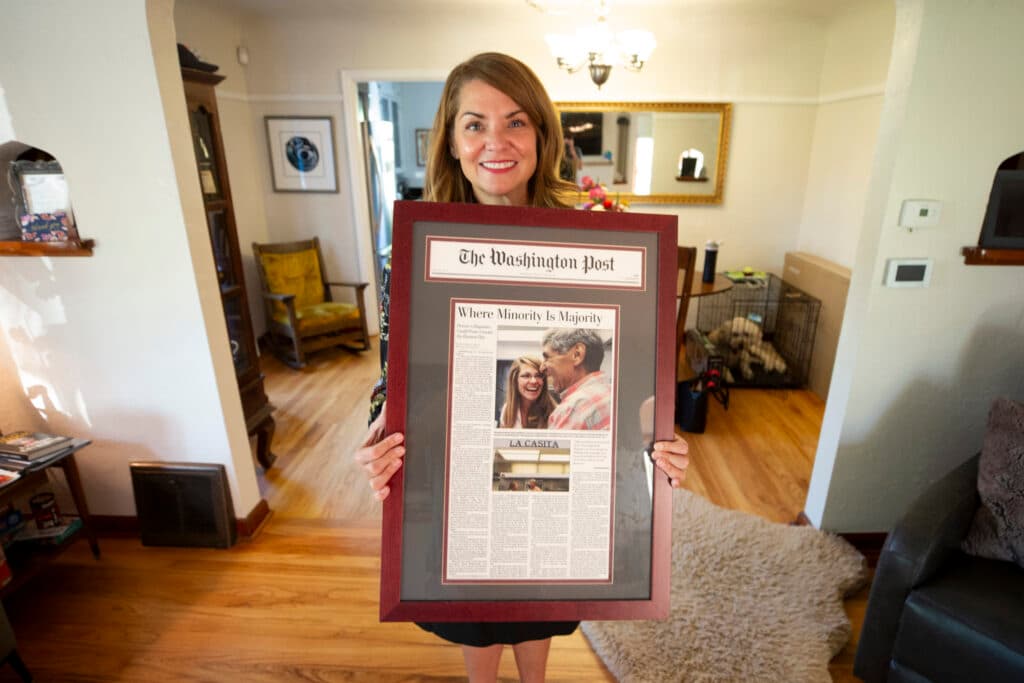
“They spent millions and millions of dollars targeting our community,” she said. “The younger generation don't understand that. And it's my job to make sure I'm protecting them.”
Amanda said Paul Sandoval did finally quit smoking. But it didn’t happen until he’d already been diagnosed with cancer.
She said his presence, and absence, is deeply felt, in part thanks to the old gold-upholstered rocking chair. Its scent still carries his memory, like when the family gathers for dinner.
“Both my kids are like, ‘Oh, it seems like Grandpa just dropped in.’ And how sad is it that their grandpa's not here, living their lives and making tamales with them?”
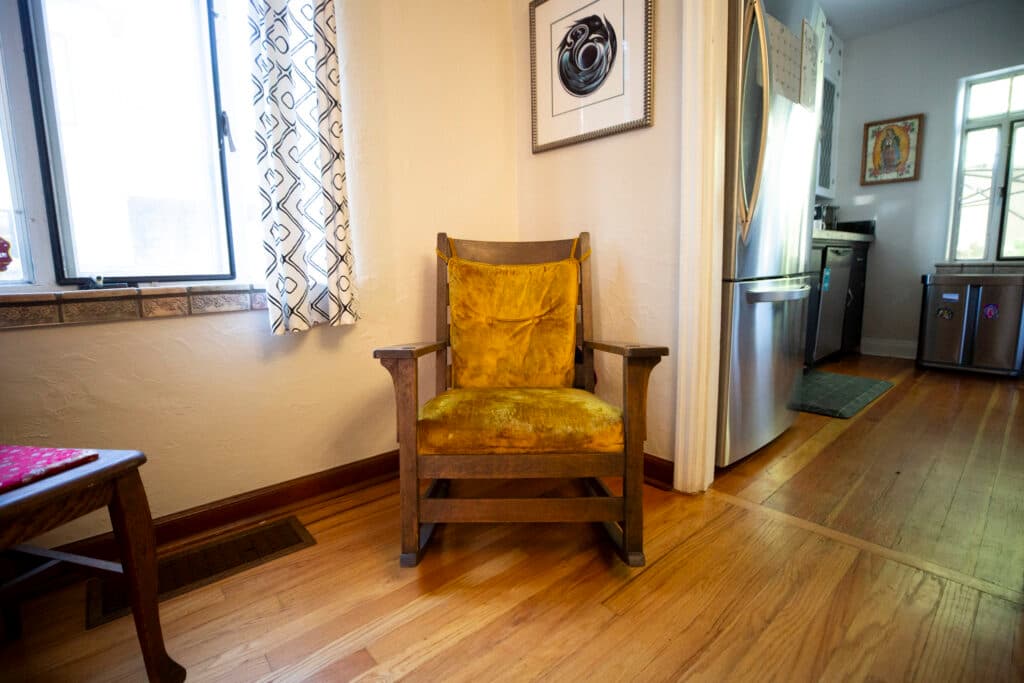
Tomorrow on Denverite: Meet some of the people who work at a Denver vape shop and read why they’re urging Denver residents to cast a no vote.

